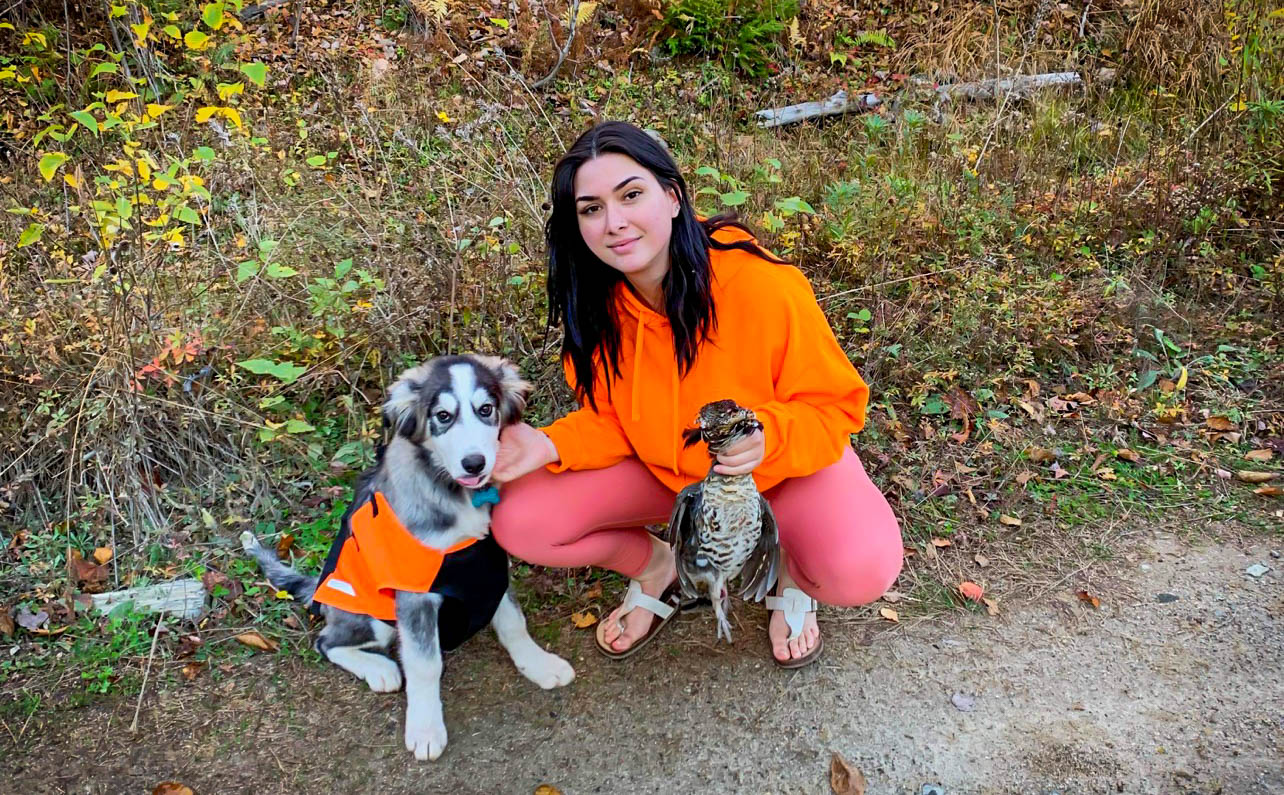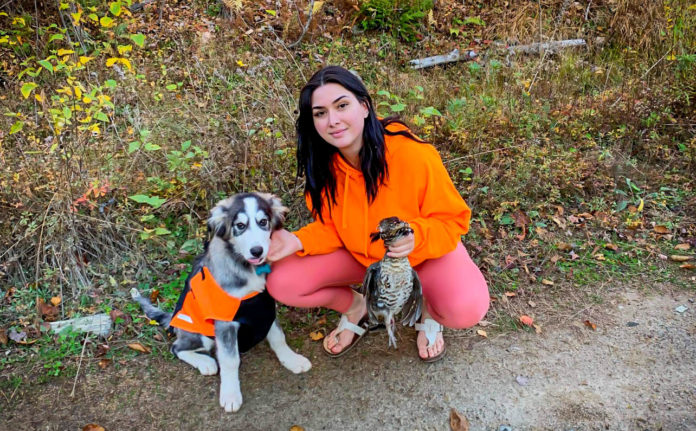Milly Squires’s father taught her to hunt at a young age but also how to pay respect to animals.
“I continue to practice gratefulness and thankfulness for the animals that sacrifice their lives so that I may feed my family, and I’m teaching my daughter the same tradition that I grew up with,” she said.
Squires has hunted more regularly since 2020 and emphasizes the importance of environmental awareness. She feels a lot of hunters forget the severity of their actions, often abusing the system.
“[They] will kill for sport and for fun, and leave the animals there and don’t even use them,” said Squires.
“That animal in particular might not have had to die.”
After she hunts, Squires uses nearly every part of an animal. She saves the breast and giblets and harvests them for meat, while other things like feathers can be used for crafts.
“Or I’ll leave them out for birds when they build their nests,” she said.
Squires said it is important to respect nature and what it has to offer.

“You see so many reports of endangered animals going extinct and these habitats being demolished, and species left with nowhere to go or in these critical conditions because humanity has forgotten its roots,” she said.
Tori Anderson, who plans to attend the New Brunswick Community College in Woodstock, began to hone her hunting skills about three years ago when she sat down with her dad, who taught her the ins and outs.
Anderson said you should hunt with people you are comfortable around, but she prefers to hunt independently. The quiet helps her concentrate.
“Usually [I] go early in the morning, or right before the sun sets,” she said. “That’s the best time, I find.”
Anderson hunts mainly deer and partridge and takes her fresh game to a butcher who prepares the meat for her.
Her family is French, and Anderson said they typically hunt differently, with some relatives hunting for up to three weeks out of a year.
She said knowing how to hunt is a valuable skill, and she even feels more comfortable eating meat from a deer or moose she shot, noting she experienced food poisoning from meat purchased at a grocery store.
“When you put in the time, it costs enough and you just have to buy a license. But it’s worth it,” she said.

